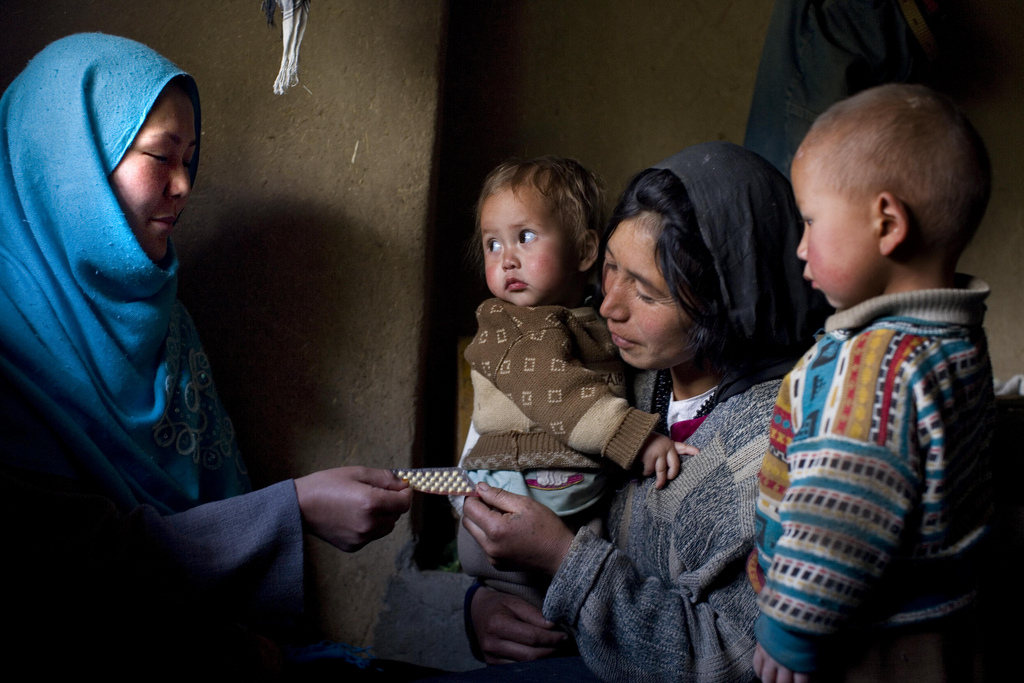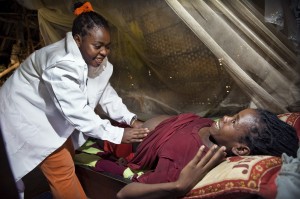Health workforce report feels like Groundhog Day for global health

By Mary Beth Powers, Frontline Health Workers Coalition and Save the Children
Groundhog Day is the day in February where in the United States, people wait for a groundhog to emerge from his underground winter home to see if he sees his shadow. If he does, it means we will have 6 more weeks of winter – an outcome that is typically met with dread. I have been feeling a bit like that as the global health community has been waiting for the release of the World Health Organization and the Global Health Workforce Alliance´s “A Universal Truth: No Health Without a Worker” report released here today at the Third Global Forum on Human Resources for Health to update the global state of the health workforce critical to maintaining and furthering progress in global health. Sadly, I think the world has seen its shadow.
The report suggests that fully 83 countries are estimated to be below the threshold of 23 skilled workers (doctors, nurses and midwives) for 10,000 people. This is quite alarming but worse still is the estimate that the global health workforce shortage for 2035 is nearly 13 million skilled workers. This is due in part to population growth and the aging of the current health workforce. Although the report notes net gains in health workers in many of the countries where reliable data was obtained, clearly we need new strategies to produce, support and retain health workers to fill the gap, as the Frontline Health Workers Coalition have stated in response.
Sadly, the report, like its predecessor, has limited ability to assess the situation on the ground with regard to many other types of health workers who are both filling gaps and providing much needed services quite ably around the world. Community health workers and other skilled health worker cadres like medical assistants and clinical officers are not typically counted by governments and not consistently reported to WHO, and thus are not well covered in the report. We know the world is short on these kinds of workers but without consistent definitions of these workers’ areas of practice and without reporting on them, we have at best an incomplete picture of the desperate situation the world is facing.
Community and other frontline health worker team members serve closest to communities in need and have greatly contributed to the progress being made on reducing child mortality, communicable disease spread and malnutrition. They, along with skilled birth attendants – many of whom serve on the frontlines – also contribute to the reduction in maternal mortality. But they are not always recognized for their contributions, compensated and, at the most basic level of recognition, they are not counted.
All health workers need to be recognized and valued for their important contributions to society. At a meeting organized by Ray Chambers, the UN Secretary General’s Special Envoy on Financing the Health MDGs, a colleague from Zambia asked the group, “What if we, in Africa, respected our health workers like we respect and treat our armies?” His question stuck with me as we created the Frontline Health Workers Coalition in an effort to highlight the amazing work of frontline health workers and to support the global health funding which in part goes to training, equipping and encouraging the development of an army of life saving heroes around the world.
That’s one reason that we created the REAL Awards (www.theREALAwards.com) to celebrate the dedication, caring and impact of health workers around the world. We need more health workers and we need to respect and care for those that we’ve got. Many young health workers leave their posts in search of better opportunities or because the working conditions are just so tough due to the lack of investment in health systems. But if we can’t climb out of the hole that we’ve dug for ourselves and take a look at this situation, the future is a lot darker than just six more weeks of winter.
The Third Global Forum on Human Resources for Health, which started yesterday and closes Wednesday, is giving us a chance to open our eyes and the eyes of world leaders to the critical role of frontline health workers around the world and the need for more consistent counting and reporting of what they do so that we can effectively deal with global health workforce issues. We really have got to change our game in terms of valuing and supporting existing health workers and recruiting and training the next generation, or we will surely continue to see our shadow again and again in the future.


